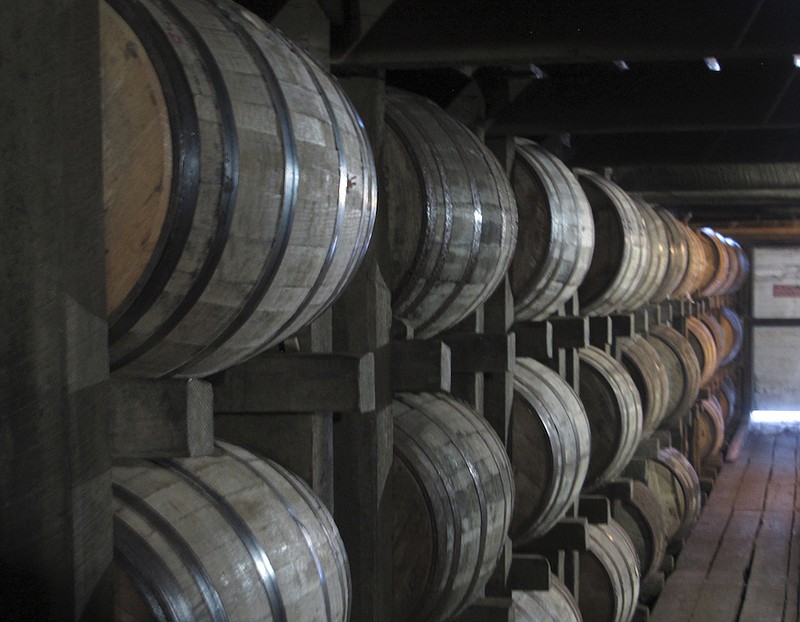Kentucky bourbon makers go green
The process of making fine whiskey involves aging spirits to a golden brown, but a bourbon producing giant is going green along the way.
Beam Suntory, producer of top-selling Jim Beam and Maker's Mark, both crafted in Kentucky, said Wednesday it wants to cut its companywide greenhouse gas emissions and water usage in half by 2030. The company's more ambitious goal is to remove more carbon than is emitted from its operations and among its supplier base by 2040.
The spirits giant also is committed to planting 500,000 trees annually by 2030, with a goal of planting more trees than are harvested to make barrels to hold its aging whiskeys. Bourbon ages for years in charred new oak barrels, where it acquires its color and flavor.
The sustainability campaign will span every facet of production - from "seed to sip," it said.
"Making a positive impact on the planet, consumers and communities isn't just the right thing to do - it's a must-do for the sustainability of our business and humanity," said Albert Baladi, president and CEO of Chicago-based Beam Suntory.
Cadillac Lyriq SUV price to start at $59,900
General Motors revealed the production version of the 2023 all-electric Cadillac Lyriq SUV Wednesday along with its starting price.
The vehicle will start production around this time next year at GM's assemby plant in Spring Hill, Tennessee, nine months ahead of schedule, thanks to advances in virtual technology. But consumers can start ordering the Lyriq this fall.
The Lyriq, along with the luxury brand's teasing of an upcoming Celestiq electric sedan, reconfirms Cadillac's commitment to ending internal combustion engine (ICE) vehicles in favor of an all-electric lineup by the end of the decade.
"We've been on record saying, 'We'd enter this decade as an ICE brand and leave this decade as an EV brand,'" said Rory Harvey, vice president of global Cadillac, during a press briefing Tuesday. "Which means that we will not be selling ICE vehicles by 2030."
The Lyriq will be powered by GM's Ultium battery platform and be built at GM's Spring Hill Assembly plant in Tennessee.
Whole Foods uses palm price scanners
Starting Wednesday, customers at the Whole Foods store in Seattle were able to pay for their groceries with their palms.
Amazon, which acquired the grocery chain in 2017, has installed its Amazon One palm-scanning devices at one of the Seattle Whole Foods stores. The company plans to expand the contactless technology to seven additional Seattle-area Whole Foods stores in coming months.
So far, thousands of customers have signed up to use the terminals, Kumar said. Users register by scanning their palm and connecting it to a credit card or Amazon account, then scanning their palm again to pay. Their biometric payment profile follows them to every store with Amazon One cashiers.
U.S. takes aim at ransomware
The Justice Department has assembled a task force to confront ransomware after what officials say was the most costly year on record for the crippling cyberattacks.
The task force of FBI agents and Justice Department prosecutors is an acknowledgment of the growing threat posed by ransomware attacks, in which hackers lock up computer data and demand ransom payments in order to give it back. Ransomware attacks have impeded hospital operations, led to the temporary closure of school classes and caused other chaos.
The task force and its goals were laid out in a memo this week from John Carlin, a senior Justice Department official.
- Compiled by Dave Flessner
